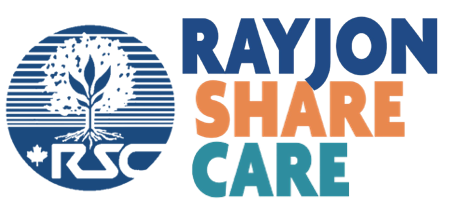Were you able to catch the free screening of UnCharitable that Rayjon hosted last week? That was some heavy content, so it’s worth revisiting some of the key ideas and perspectives from the film. The point is not that there is a foolproof perfect way to operate a charity, but that if the charities we love are to succeed at achieving their missions, then we, as their supporters, need to put some serious thought into how we can best help them do that.
My own expectations of UnCharitable were high, no doubt influenced by the high-level marketing that promised to “deliver an emotional journey that moves, persuades and inspires” and to help us “confront an increasingly unstable world with the growing revelation that we are all interconnected and that our fate lies in how much we are willing to invest in positive change.” (Phew. I’ll take a tall glass of that!)
As happy as I am to see the film getting mass attention, honestly, I was a little disappointed, and I suspect it’s more than typical moviegoer’s emotional letdown. Overall, I was left feeling that large parts of the story were left out—important parts:
1) It’s not all about $.
When I first watched Dan Pallotta’s viral 2013 TED Talk, The way we think about charity is dead wrong, I was thrilled that someone had managed to put into words such an engaging and well-received speech what so many fundraisers had felt in our bones for a long time. (Can I get an ‘Amen’?).
But if we focus so intently on this issue of overhead, encouraging spending on marketing so that, in theory, we end up with more donations to fuel our mission, do we risk making it all about money? We need to remember that the end goal isn’t the most $ possible. What if the end goal were the most GOOD possible? The most JUSTICE? The most EQUITY?
If we focus only on the $ coming in and out, I’m afraid we will forget about the value of the time, talents, advocacy, and connections that our supporters offer to Rayjon, instead focusing only on monetary value. I’m afraid we’ll prioritize interactions with our wealthiest donors, and forget about the contributions of everyone else (which could potentially have even more impact). We also need to reach out and engage those with lived experience of the very social justice issues we are fighting so hard to change.
2) More $ doesn’t necessarily mean more impact.
Sure, we all want to see more $ invested in the charitable sector, because local charities are doing amazing stuff (often stuff that our governments aren’t doing). On the flip side, I’ve seen numerous instances when accepting donors’ dollars has led to more harm than good. When donors still drive the decision making, when they hold the power, there is potential for the marginalized communities we are supposed to be helping to be hurt. Sometimes donor-restricted gifts come with huge strings attached, creating headache and heartache for organizations and the people they serve. We have to make sure that our partners in Haiti and the Dominican Republic are driving the vehicle of change—responding to what they tell us are the most urgent needs, understanding that they know best how to solve problems in their own communities, and fiercely supporting their autonomy and decision-making. (See our Strategic Plan for more on this).
It’s easy for charities to fall into the trap of a scarcity mindset, competing for limited resources, instead of sharing them. Aren’t we all working toward the same end goal—to make this world a better, more equitable place for all of us to thrive? If I’m launching an advertising/fundraising campaign and your charity is doing the same, do we end up fighting for our place on top, in a winner-takes-all battle to the death? We can do better. What resources can we share? Can Rayjon introduce your charity to a special group of funders or a grant opportunity that isn’t the best fit for us, but is right in line with the goals and values of your charity? Or vice versa? We’ve got to quit stalking every funding opportunity like prey to be devoured, and learn to celebrate the wins of other charities, knowing that when they win, we all win.
If the end goal of every fundraising campaign and donor recruitment strategy is only to get more money, then we have missed the point. One of the reasons that I believe Rayjon doesn’t need to invest huge dollars into advertising campaigns is that we are deliberately cultivating a community of supporters who truly believe in our mission, and who trust us how to execute it. We don’t have to hound them for support, they often give without being asked!
3) Bigger isn’t always better.
I have noticed that the perspectives and value of smaller, grassroots organizations (like Rayjon) often go unrecognized. There are some tasks that small organizations are actually better positioned to tackle, especially when we’re talking about localized approaches to addressing complex social justice issues! For Rayjon, I think part of that it comes from the unique trust and long-standing relationships that we have been able to form with the Haitian & Dominican communities we partner with. I argue there is a right size for every charity—and only they can find it.
(Check out this 2016 study which shares some key findings about small and medium-sized Canadian organizations and their unique key characteristics and competencies in the realm of international cooperation.)
So what do I think about overhead? What does Rayjon think about overhead?
In their mission to change the way people think about charities, the producers of UnCharitable zeroed in on charity overhead spending and how it’s perceived by the public. Maybe the they felt this was the one piece of change information that viewers could digest. It’s an important subject, and one I’m grateful is getting some attention. For the record, I (Heather) agree emphatically that we have to stop thinking of overhead as only ‘bad’ and change the expectation that charities reduce it to nothing, often at the expense of effectively achieving their missions.
As an organization, we’re grateful that our overhead is low, but we also recognize that it’s an incredible privilege that we’ve been able to keep it so. For example, we have volunteers willing to do some of the work that many other charities have no choice but to hire employees to do (from things like inputting donors’ donations into a database and issuing tax receipts, to collecting donated prescription eyeglasses, to organizing fundraising events). We have generous community partners here in Sarnia who lend their spaces for us to hold meetings, so that we don’t need to rent an office (also something not all charities can do—Can you imagine a charity that provides services to individuals experiencing homelessness in Canada trying to operate without a physical location to meet those individuals?). At the same time, we also acknowledge the incredible value to the organization of the many expenses that get lumped together as “overhead”—from the salaries of our executive director (that’s me!) and program coordinators, to the modest costs associated with community outreach and engaging new volunteers to support our mission. There is no doubt that charities need “overhead” to operate effectively.
Rayjon no longer constantly tells the public just how low our overhead is. It’s certainly not something to hide—that percentage is clearly visible in our annual reports, on our financial statements, and readily available on our website. We probably could even attract a few new donors if we did advertise it more deliberately. But we recognize that proclaiming things like “100% of your donation goes to programs” is not only misleading, but could also harm other deserving charities. Think of a very small, grassroots organization, say, one even smaller than Rayjon. They have only one full-time staff member, who works exceptionally hard to meet the needs of clients. An office is mandatory in their case, in order to serve the most vulnerable. Total donations to their organization only add up to $100,000 per year, but right away 50% of that goes to “overhead,” through the salary of their employee (who is still paid much less than they would be if they did the same job in the for-profit sector) and to cover the rent of their space. That charity doesn’t have the luxury of saying “Our overhead is only 5%,” and yet, they are probably doing exceptional work, worthy of our support. See the dilemma?
It’s my perspective that Rayjon is taking a very balanced approach. Like you, we want to see the maximum dollars dedicated to programs, and into the hands of our Haitian & Dominican partners who we know will use it to do exceptional things. To do that, we need to support reasonable overhead costs that make our work possible, and also keep us accountable to donors like you.
– Heather Smith
To Dan Pallotta & the makers of UnCharitable: Thank you for creating UnCharitable and making it accessible. I’m happy to have seen it, happy to have shared it. Thanks for reminding of us of the need to dream big, imagining the future as we want to see it. Thank you for furthering the conversation. I hope it’s just getting started.
To supporters of Rayjon Share Care: What do you think?
[Photo by Júnior Ferreira on Unsplash]

